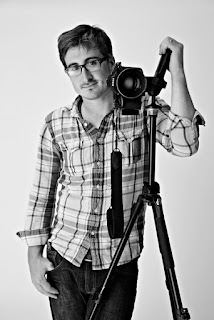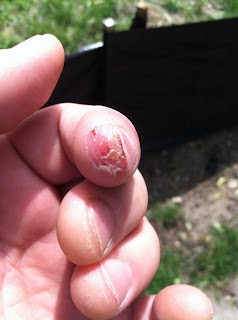I grew up in a hockey family. As the youngest of 12 (and the seventh boy) I would squeeze into hand-me-down skates and coats to spend cold Chicago winter nights on the ice rink Dad and my older brothers would build atop the backyard garden. I can still hear Christmas carols played on the bells at St. Cletus while skating figure eights in the darkness.
But I was not a hockey player. Maybe I had weak ankles, because skating hurt. I lacked coordination. Maybe it was mental. I'd never be as big or as good as my older brothers, so what was the point? I was destined to always come up short, to be the runt. Hockey was no sport for a little boy among much bigger boys.
I was 6 years old in 1971, when the Blackhawks blew a 2-0 lead at home in game 7 of the Stanley Cup finals and lost to the Montreal Canadiens. This was back when the Blackhawks were on WGN-TV, Channel 9 in Chicago. I don't remember the games but I remember the commercials. There was one for Celozzi-Ettleson Chevrolet showing a new car slowly rotating on a stage in an ad for the new 1972 models.
"But it's still 1971," I remember protesting. "How can they be selling 1972 cars?"
We grew up in Countryside, and the city politicians or the union would throw a Christmas party for kids at the Operating Engineers Local 150 hall and raffle off gifts. One year I won a hockey stick. The moment I returned to my seat from the stage with prize in hand, my brother Frank convinced me to trade my stick for something else. I don't remember what it was. I remember Mom or Dad asking me if I was sure I wanted to trade, because it had the appearance of a one-sided deal and an opportunist taking advantage of the situation. That stick was too big for me anyways.
Besides, Frank still plays hockey every week. So does Bud. They're in their late 50s now, still subjecting themselves to abuse. Hurling their bodies into boards to finish checks. Turning on the jets, hoping for breakaways. A little one-on-one action. They'll never admit they're old. They'll skate until they die.
As I got older they were great about including me, the tag-along little brother. Bud and Liz and their friends would take me to rat hockey games at the Willow Ice Chalet in Willow Springs. They'd sneak in beers and I'm sure all kinds of other stuff. Bud's a Blackhawks season ticket holder and takes me to a game every year for my birthday.
Frank's a great sport, too. He let me listen to his albums whenever I wanted and make tapes of the songs I liked, which meant I could hang out in his room. He put up with all that and still organizes our annual family outings to a Cubs game in the summer and a Buddy Guy concert in January.
 |
| Nick with the 2013 Stanley Cup |
Lizzy's husband, Steve Ruck, is an NHL official. He's in charge of the clock at the United Center during Hawks games. You see him on TV all the time. Steve's dad was a scorer before him, and his grandfather before him. Hockey runs through bloodlines more than any other sport.
So there's hockey blood in my family, and I cheered the Chicago Blackhawks to their Stanley Cup Championship during this bizarre strike-shortened 2013 season. Championships in this town are rare, and this one feels especially sweet. Congratulations, Blackhawks.



















